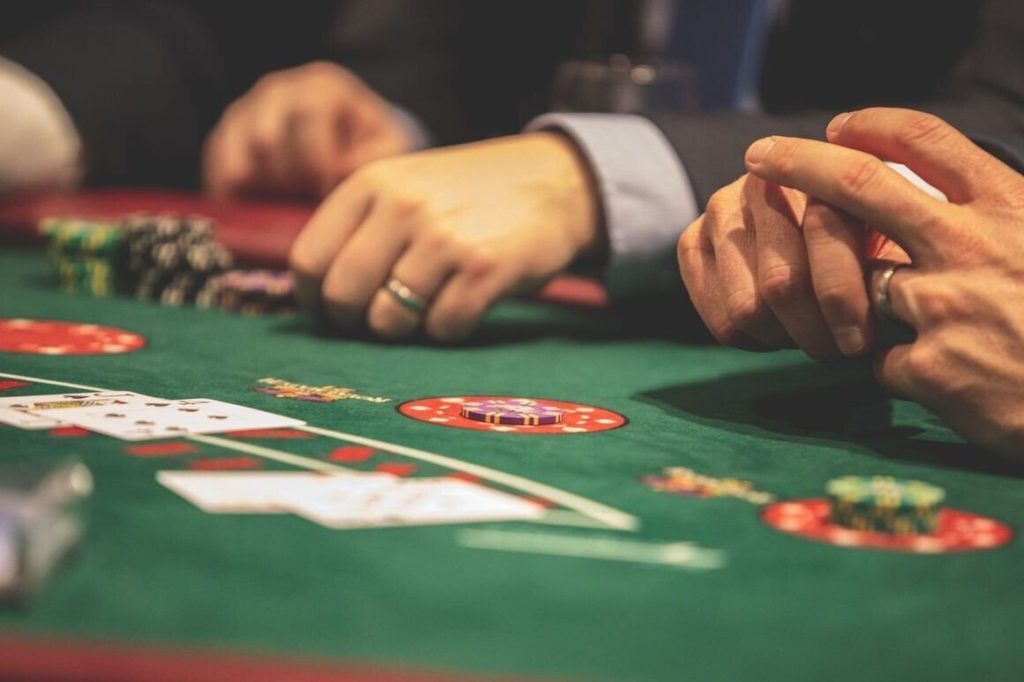Gambling is fun, but have you ever thought about why this is? If you haven’t, don’t worry, our experts have. In this guide, we’ll dive into the psychological reasons why people gamble. We’ll also explain how you can identify your own gambling psychology to gain insights into your specific playing style and the potential risks related to it.
How Responsible Gambling Protects Your Fun (and Your Wallet)
Responsible gambling is the most important reason to understand your own style or psychology of gambling. If you understand the triggers and what personally triggers you, you can more readily set limits for yourself. Setting limits is a key part of gambling responsibly.
Without limits in place, a fun gaming experience can potentially go off the rails quite quickly. What exactly does that look like? It might mean losing large sums of money or neglecting personal relationships. We’ve unfortunately heard many horror stories of players who’ve gambled with rent money or used their childrens’ school funds. These actions have real consequences on your interpersonal life and social circle.
In general, there’s nothing wrong with having some fun. But, it is incredibly important to think about your gambling psychology, personal preferences, and what type of gambler you actually are. Then, use that information to decide on a budget and set realistic limits for yourself.
Finally, it’s crucial to hold yourself accountable when it comes to gambling online. If you feel you might need some help with that, we recommend using responsible gaming tools available at most (if not all) online casinos, such as setting deposit and/or loss limits and cooling-off periods. These are some of the most common and useful resources to help you feel the thrill of gambling without risking going overboard.
What Are the Red Flags of Problem Gambling?
This is the part of the article that’s going to force you to look into the mirror a little bit. Understanding gambling psychology is just the first step, but actually applying this knowledge to yourself can be a different story. That said, you should embrace what you learn and lean into it, to better understand the reasons behind your play.
Noticing problematic behaviour and responding accordingly is what really makes you a responsible gambler. To help you do that, we’ve outlined the potential pitfalls and risks of each gambling style. These can help you spot lurking dangers, before it is too late:
Gambling style | Trigger | Behaviour | Dangers |
|---|---|---|---|
Thrill-Seeker | Chasing losses | Being down big, but still betting to recoup your losses, or ignoring your budget, or doubling up. | Could lead to increased financial losses and a decline in mental health. |
Strategist | Thinking you can beat the house | Betting bigger or coming up with new schemes to try and beat the system. | Added financial pressure, increased feeling of failure or shame and a decline in mental health. |
Social Gambler | Cutting off social activities | Prioritizing gambling over school, get-togethers with family, work, or other social interactions. | Could result in fewer in-person friendships, and a decline in mental health. |
Escape Gambler | Constantly planning gambling activities | Constantly planning gambling activities in a way that is over-the-top. | Financial losses, declining mental health, distancing from friends and family. |
Helpful Responsible Gambling Resources for Canadians
If you need help, there are a number of organizations willing to offer you support. You don’t have to feel like you’re alone with no assistance. Here are a few places you can turn to for guidance:
Responsible Gambling
Visit Responsible Gambling for valuable resources and support to help you gamble responsibly.
More InfoOntario Gaming
Explore Ontario Gaming for tips and guidelines on maintaining control while gaming in Ontario.
More InfoCanadian Gaming Business
Learn more at Canadian Gaming Business for industry insights and responsible gambling practices in Canada.
More InfoFAQs
Everyone who struggles with problem gambling does so for different reasons. Some people are genetically predisposed to addiction. However, we’ve noticed that problem gambling is usually a part of wider mental health issues. For example, many people turn to gambling when they are stressed, which then becomes a coping mechanism that’s hard to break out of.
Problem gambling affects everyone differently, but in our experience, most problem gamblers struggle with impulsive thoughts and compulsive behaviour. If you’re constantly thinking about gambling or gambling when you know you shouldn’t be, you might have a problem.
We’ve tested lots of strategies and the best way to combat problem gambling is to be proactive. Before you gamble, you should set a budget and actively manage your bankroll to make sure you stay within your limits. If you feel like you’re losing control, seek help before it gets too late.
If you struggle with problem gambling or want to learn more about how to prevent it, we recommend you visit the Responsible Gambling Council website. There, you will find guides, tips, and links to other resources near you. If you’re in Ontario, we also recommend checking out the iGaming Ontario responsible gambling hub.










